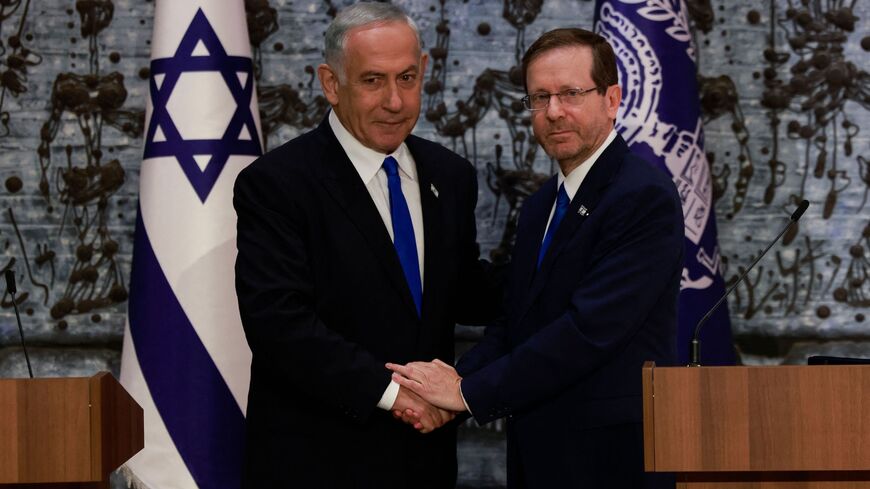Israel’s President Isaac Herzog returned Dec. 5 to Israel after a successful, official visit in Bahrain and the United Emirates — straight into political turmoil.
Ever since the Nov. 1 victory of the right and the ultra-Orthodox in the elections, Herzog finds himself being treated as the “responsible adult” — the moderate senior figure serving as the domestic and international face of Israeli liberalism.
Prime Minister-designate Benjamin Netanyahu will apparently ask for an extension of time for his coalition talks. He needs more time in order to pass legislation demanded by his future government partners as condition for them to join. Justice Minister Gideon Sa’ar called today on Herzog to refuse the expected request, but chances are slim for that to happen.
Still, associates of Herzog believe he will continue to act even after the government is established, to enlarge it through moderate players such as the National Unity camp.
Herzog has a good relationship with Netanyahu on the personal level, and will probably mediate between two Israeli political camps. This is despite the fact that Herzog has already suffered strong criticism from his own Center-Left because he chose Naor Yichye as his spokesperson — who also served as Netanyahu’s speaker in the past.
Herzog is also on good terms with the ultra-Orthodox parties that voted for him in the 2021 presidential elections, partly because he is a grandson of a former chief rabbi. The presidential elections, held at the Knesset, are by a secret ballot, but experts say quite a few Likud members, maybe even Netanyahu himself, voted for Herzog.
Apart from trying to appease tensions within Israeli politics, Herzog could play a dominant role in foreign policy. The new furthest-right government in Israel’s history was criticized by the Americans even before it was established. Herzog has excellent contacts with the American government and with European leaders; he is also accepted and respected in the Arab world. This could balance tensions around Netanyahu’s policies on issues such as Jerusalem and Temple Mount.
In a conversation with correspondents in Abu Dhabi during his visit there yesterday, Herzog called on Israel’s new government to strengthen the Abraham Accords and to extend connections to other countries as well.
Herzog chatted with Netanyahu before he left. According to an Al-Monitor source, the two men coordinated messages relayed to the Bahraini and Emirati hosts.
Also, the president’s brother Mike (Michael) Herzog serves as Israel's Ambassador to the United States, and in 2014 served on the team for secret negotiations with the Palestinians on behalf of Netanyahu. It is quite possible that Netanyahu will chose to keep Mike Herzog in this position, often reserved for a confidant of the prime minister.







